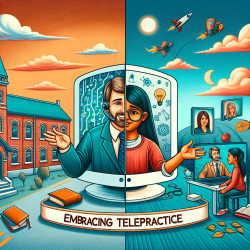The transition from pediatric to adult healthcare is a critical period for adolescents and young adults (AYAs) with chronic conditions. This transition often involves shifting from specialized pediatric care to primary care settings. A recent scoping review titled "Community based Primary Care for Adolescents and Young Adults Transitioning From Pediatric Specialty Care: Results from a Scoping Review" offers valuable insights into how primary care physicians (PCPs) can effectively support AYAs during this transition.
The Role of Primary Care Physicians
Primary care physicians play a pivotal role in ensuring continuity of care for AYAs transitioning out of pediatric specialty services. The review highlights several key responsibilities of PCPs:
- Medication Management: PCPs are often tasked with managing medications for chronic conditions, ensuring adherence and monitoring side effects.
- Mental Health Support: Addressing non-complex mental health issues and providing referrals to specialists when needed.
- Care Coordination: Collaborating with specialists to coordinate comprehensive care plans.
- General Health Maintenance: Managing routine health concerns such as immunizations and acute illnesses.
Shared Care Models: A Collaborative Approach
The scoping review underscores the benefits of shared care models, where PCPs collaborate closely with specialists. These models have shown to improve outcomes by leveraging the expertise of both primary and specialty care providers. For instance, shared-care models have been effective in managing conditions like cancer and mental health issues, leading to better patient satisfaction and adherence to treatment plans.
Challenges and Opportunities
The review identifies several challenges faced by PCPs in managing AYAs with chronic conditions. These include a lack of training in handling complex cases, time constraints during consultations, and inadequate reimbursement for extended services. However, these challenges also present opportunities for further research and development of targeted interventions.
For practitioners looking to improve their skills, engaging in continuous professional development through workshops, webinars, and collaborative training programs can be beneficial. Additionally, embracing digital health technologies can enhance communication between PCPs and specialists, facilitating more integrated care delivery.
Conclusion
The transition from pediatric specialty care to adult-oriented primary care is a complex process that requires effective collaboration between healthcare providers. By understanding the roles and responsibilities outlined in the scoping review, PCPs can better support AYAs during this critical period. Further research into shared-care models and innovative solutions to overcome existing barriers will be essential in optimizing transitional care for AYAs.










